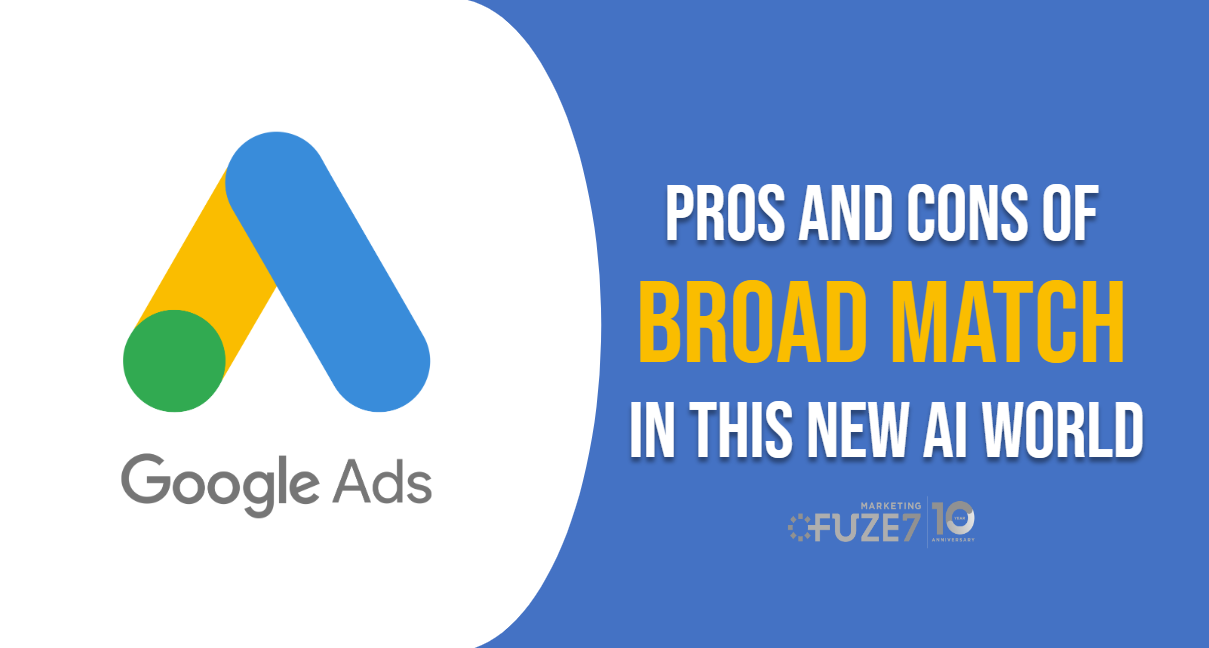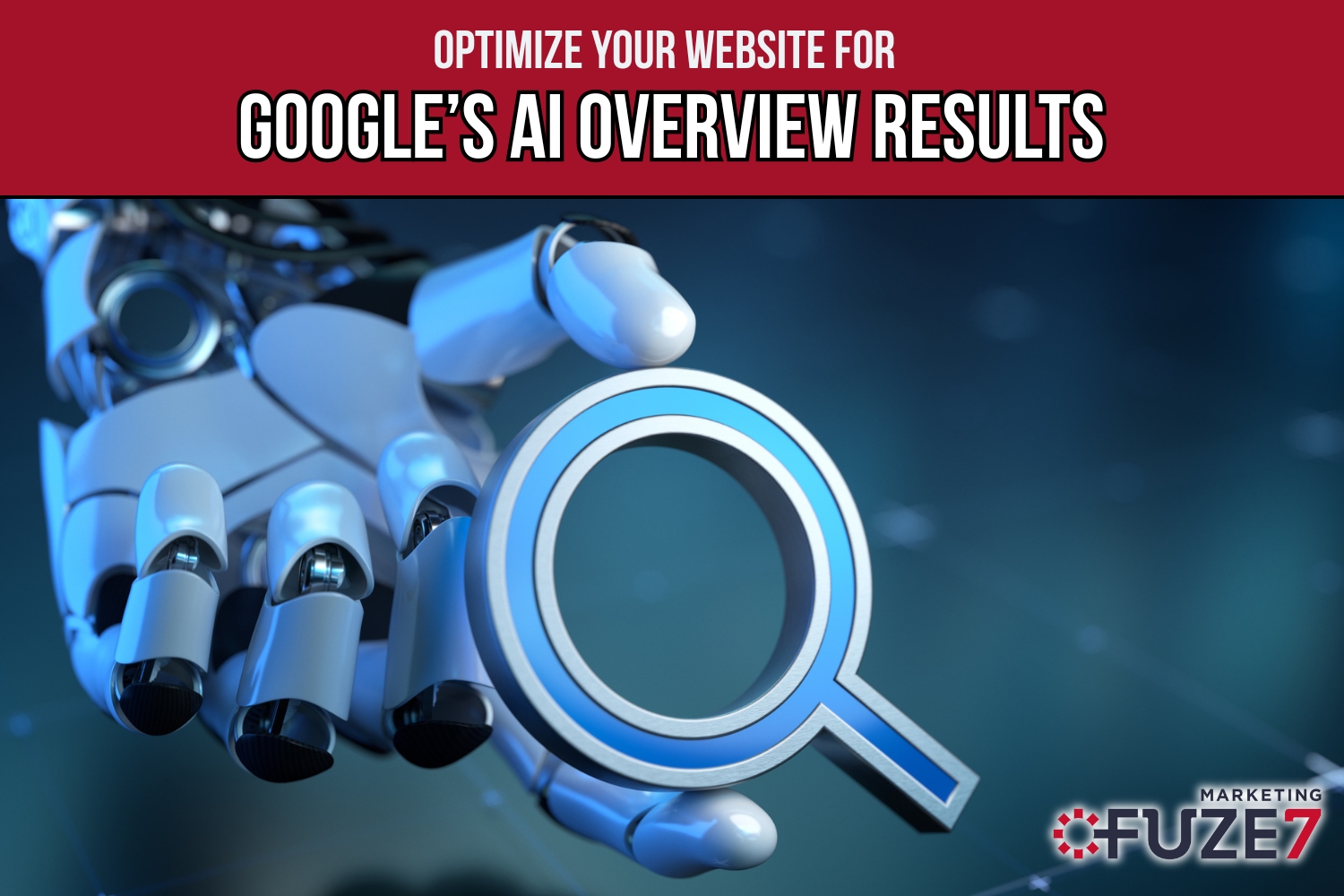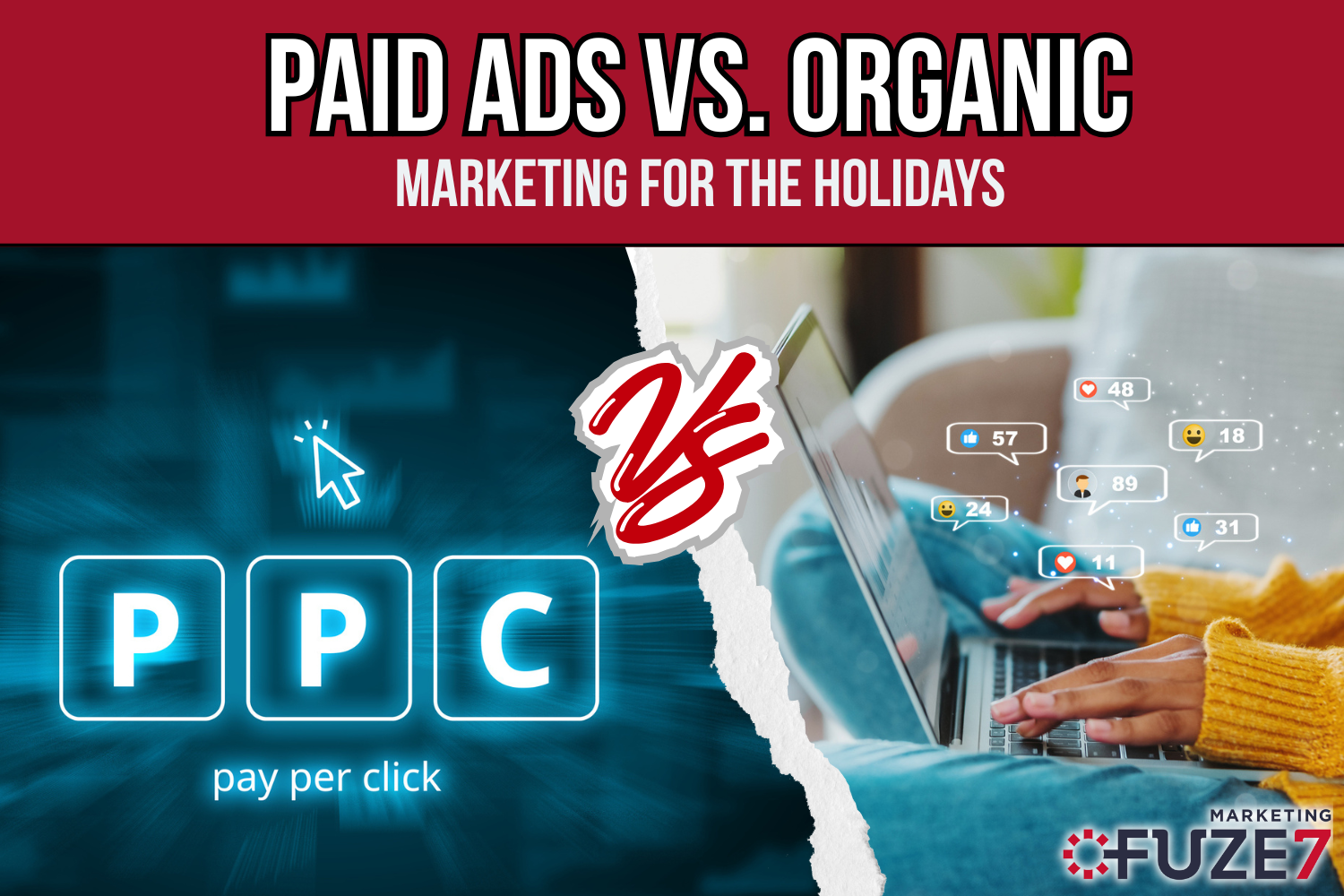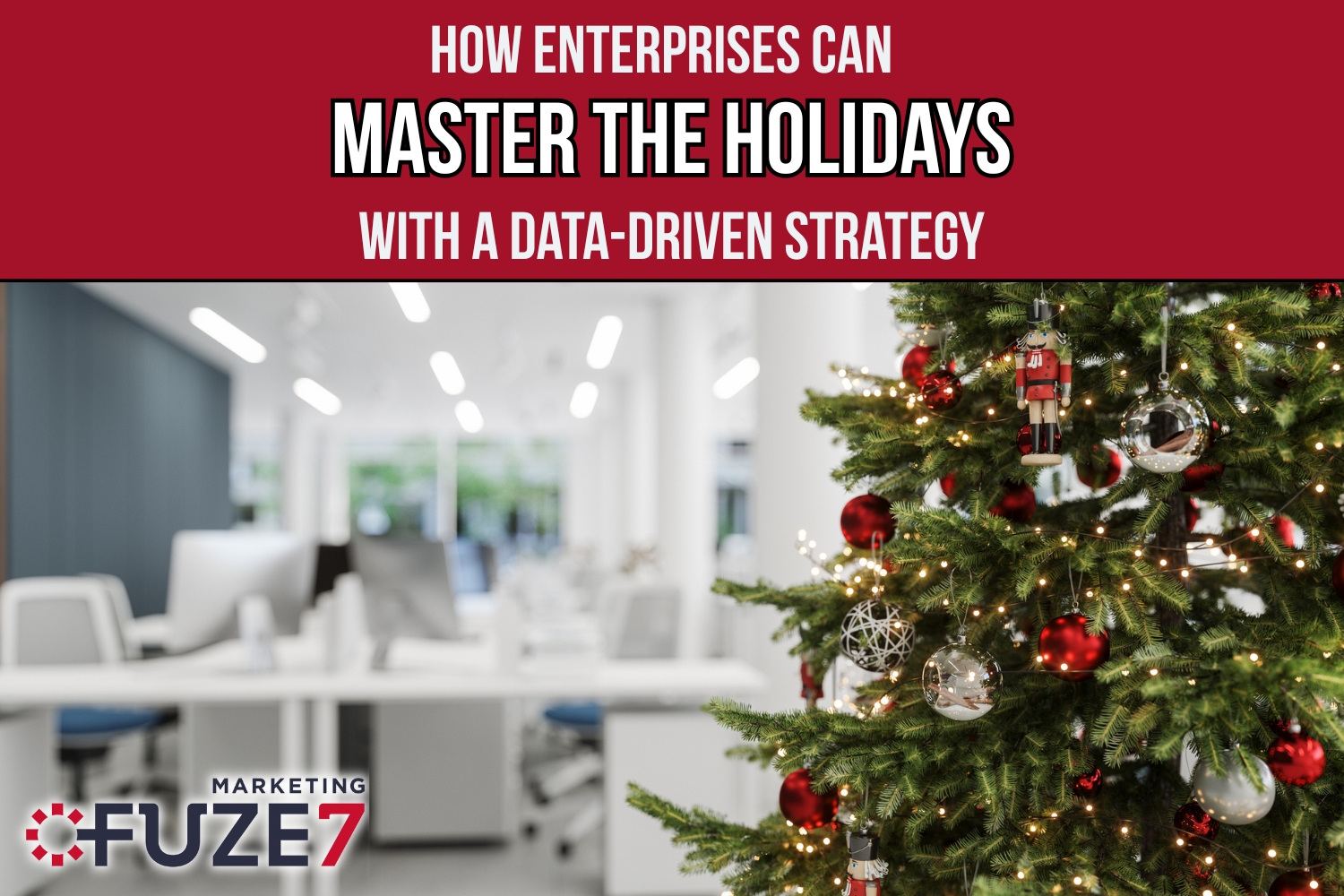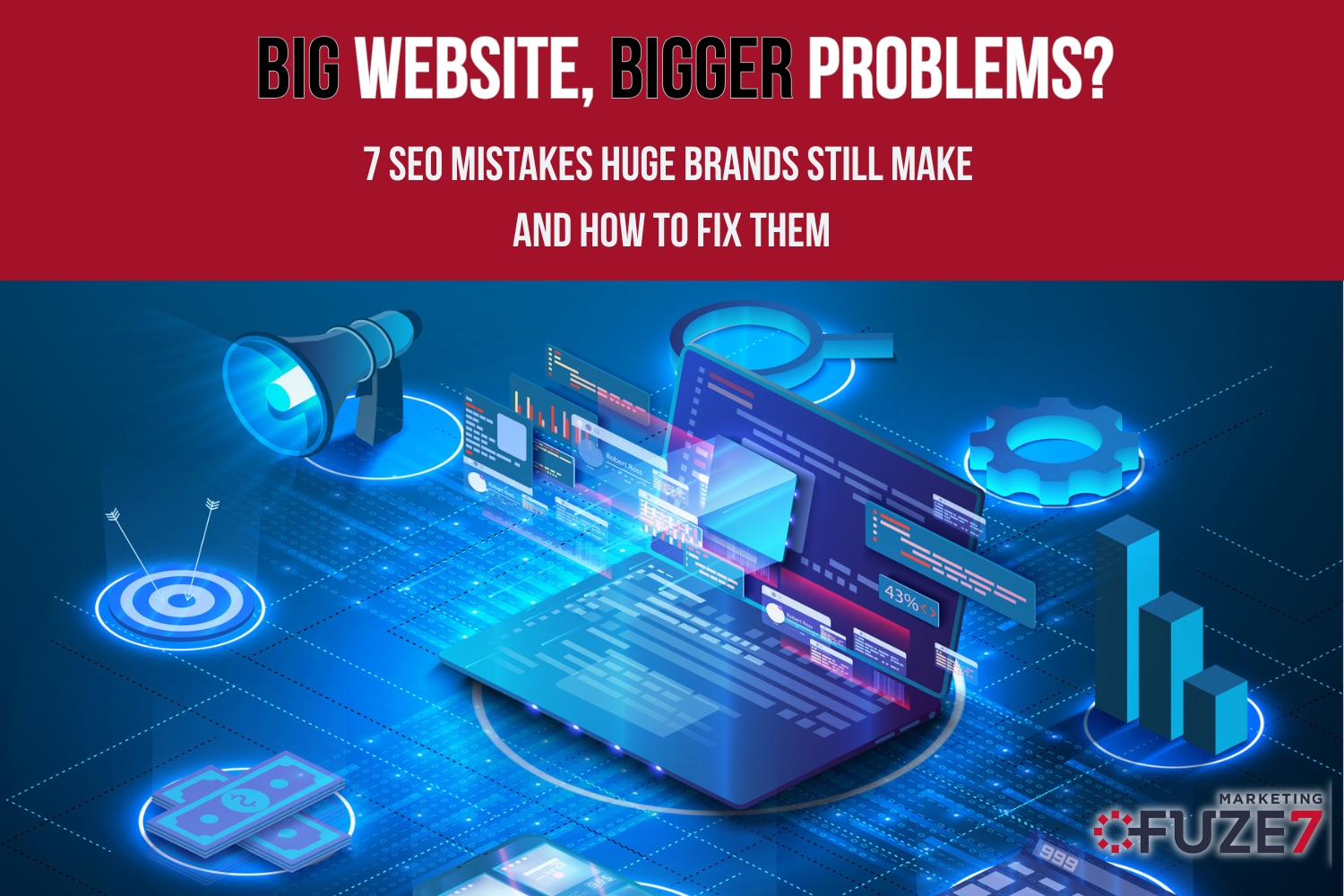At Fuze7 Marketing, we understand the pivotal role that Google Ads plays in driving traffic and conversions for businesses of all sizes. With the ever-evolving landscape of digital advertising, it’s essential to stay ahead of the curve and leverage the latest tools and strategies to maximize your advertising ROI. Today, we’re excited to delve into one of the most significant updates in Google Ads: the new formula for the Broad Match type.
What is Google Ads’ New Broad Match Formula?
Google recently introduced a revamped algorithm for the Broad Match type, aimed at providing advertisers with more relevant and precise keyword targeting. Unlike the traditional Broad Match, which could sometimes lead to irrelevant clicks and wasted ad spend, the new formula utilizes advanced machine learning techniques to better understand user intent and context.
While Broad Match is most referenced in a Google Ads setting, there are pillars in Fuze7’s SEO strategy that are built on keyword relevance for our clients.
So, how does it work?
Essentially, the new Broad Match formula takes into account various factors, including search queries, user behavior, and historical data, to match your ads with relevant search terms. This means that even if your keywords don’t exactly match the user’s query, your ads can still appear if they’re deemed relevant based on context and intent.
Here is an explanation, directly from Google on how Broad Match works:
“Broad match is the default match type that all your keywords are assigned. This helps your ads reach a wider audience without requiring you to build an extensive keyword list. For example, let’s say you have the Broad Match keyword ‘car window repair’. This keyword can reach searches such as automobile glass replacement, even though it doesn’t include any of the words as your keyword because they relate to the query.”
How does Broad Match differ from Phrase and Exact Match?
Traditionally, moving from Broad Match down through Exact Match is an exercise in sacrificing reach for relevance. In Broad Match, you are focusing on the most reach possible for your campaigns, drawing in a new audience that could eventually become customers. In Exact Match, you are looking for the most relevant searchers out there. This trade-off is part of Fuze7’s strategy, where we understand a new client’s objectives based on the business’ notoriety for their brand or product, or whether they are introducing themselves and their products to the public.
Knowing the best keyword match type for your business starts with the kind of market research Fuze7 conducts when auditing your website and overall online presence. Fuze7 also takes trends and potential negative keywords into account during this process.
Advantages of the New Broad Match Formula
- Enhanced Relevance: By leveraging machine learning algorithms, the new Broad Match formula ensures that your ads are shown to users who are more likely to be interested in your products or services, leading to higher click-through rates and conversions.
- Increased Reach: Unlike exact match or phrase match types, which have stricter criteria, Broad Match allows your ads to reach a broader audience, including users who may be searching with variations or related terms.
- Time-Saving: With the new formula handling the keyword matching process, you can save valuable time and resources that would otherwise be spent on manual keyword research and optimization.
Disadvantages to Consider
- Potential for Irrelevant Traffic: While the new Broad Match formula aims to improve relevance, there’s still a risk of your ads being shown for unrelated or less relevant search queries. It’s crucial to monitor your campaigns closely and regularly review search term reports to identify and exclude irrelevant keywords.
- Limited Control: Unlike exact match or phrase match types, Broad Match offers less control over which specific keywords trigger your ads. This can make it challenging to target highly specific or niche audiences effectively.
Should Your Business Use Broad Match in Google Ads?
Broad Match can be a valuable tool for businesses looking to maximize their reach and capture a wider audience. However, it’s essential to consider your advertising goals, budget, and level of comfort with relinquishing some control over keyword targeting.
Businesses that may benefit from using Broad Match include:
- Startups and Small Businesses: With limited resources and brand awareness, startups and small businesses can use Broad Match to increase their visibility and reach new customers.
- E-commerce Stores: E-commerce businesses with a wide range of products can leverage Broad Match to target users searching for various product categories and keywords.
- Local Services: Local businesses, such as restaurants, plumbers, and electricians, can use Broad Match to reach users in their vicinity who may be searching for related services.
How Does Broad Match Work for Negative Keywords?
While Broad Match can help expand your reach, it’s equally important to utilize negative keywords to prevent your ads from appearing for irrelevant searches. Negative keywords are terms or phrases for which you don’t want your ads to be shown.
With the new Broad Match formula, negative keywords continue to play a crucial role in optimizing your campaigns and ensuring that your ads are shown to the most relevant audience. By regularly reviewing search term reports and identifying irrelevant keywords, you can build a robust list of negative keywords to refine your targeting and improve campaign performance.
Can the New Google Ads Broad Match Type Help My Business?
In conclusion, the new formula for Google Ads Broad Match represents an exciting opportunity for businesses to reach their target audience more effectively and drive better results from their advertising campaigns. By understanding how it works, its advantages and disadvantages, and how to use it in conjunction with negative keywords, you can take your Google Ads strategy to the next level and achieve your marketing objectives. Keyword research juggernaut WordStream has provided some tantalizing statistics regarding Google’s revamped Broad Match format:
“Though Broad Match has its downsides, it still brings in 56% more conversions than exact match.””
If you’re ready to unlock the full potential of Google Ads management and elevate your digital advertising efforts, Fuze7 Marketing is here to help. Our team of experts specializes in crafting customized strategies tailored to your business needs, ensuring maximum ROI and long-term success.
Get in Touch
Contact us today to learn more about our comprehensive digital marketing services and take the first step toward achieving your advertising goals. Send an email to info@fuze.com or call (503) 830-0355 to learn how our Paid Search managers and channel experts can speak about your unique challenges and goals!
